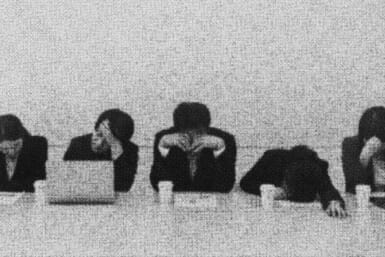Coronavirus. Surely one of the English language’s most printed polysyllabic words in 2020. Front page images of apocalyptic cityscapes, radiation-shielding hazmat suits and headlines heralding sanitary mask shortages have ensured the fear has spread even faster than the disease.
But the reality is the world is facing a crisis if the flu-like virus cannot be contained. Whether this crisis is an unprecedented pandemic with dire consequences, or purely an economic meltdown, the jury is still out. The one overriding theme to have permeated the narrative however is uncertainty; and that often leads us to paint a rather bleak portrait of the future.
100 people died due to the coronavirus in China's Hubei province Sunday, bringing the global death toll to 1,770. More than 71,000 people worldwide have contracted the virus. https://t.co/HkTKEMghfN pic.twitter.com/f0421nxMYg
— CNN Breaking News (@cnnbrk) February 16, 2020
How Can Coronavirus Affect the Olympics?
Like it or not, Japan will be at the forefront of the coronavirus conversation for weeks to come. Not only is the archipelago one of China’s closest neighbors, but it’s also set to hold the Olympic Games in five months’ time. The WHO (World Health Organization) has officially declared the outbreak a global health emergency. Such warnings do not bode well for any global events on the horizon.
Holiday makers and summer visitors have already expressed concerns about coming to Japan as news of increased numbers of coronavirus cases metastasizes throughout the walls of international media. It’s only a matter of time before Olympic athletes and coaches start pulling the plug too. The IOC (International Olympic Committee) cannot believe their bad luck. Four years ago, in the lead up to Rio 2016, the Zika virus put the Games in jeopardy. 2020 is a sadistic case of déjà vu.
Tokyo #Olympic and #Paralympic organizing committee chief Yoshiro Mori has reiterated that the schedule of this summer's games will not be affected by the spread of the new #coronavirus.#Tokyo2020#COVID19https://t.co/9k94cZl42s
— Kyodo News Sports (@kyodo_sports_en) February 13, 2020
Officials Say Olympic Games Will Not Be Affected
Within Japan, the Olympics have been the elephant in the coronavirus room. Last week however, the IOC played down concerns, with president of the organizing committee Yoshiro Mori saying, “We are not considering cancellation or postponement of the Games.”
It’s hard to know whether Mori wholeheartedly believes his statement or if he’s towing a positive party line. Not least because Japan has dumped a considerable amount of money into the sporting summer blockbuster. Approximately 11,000 athletes from 200 countries will flood the capital and beyond from mid-July, with new state-of-the-art facilities and infrastructural programs being rolled out to the combined tune of $25 billion. And counting.
Japan will suffer huge economic setbacks if the Olympics is canceled or postponed, but with potential lives at stake there is a much bigger picture that has to inform boardroom decisions. The Olympics have been thwarted in the past; and on five separate occasions no less. The 1916 and 1940 Summer Olympics and 1940 and 1944 Winter Olympics were all canceled indefinitely due to the outbreak of war. Given the cause of the cancellations, no alternative plans were made.
The Winter Olympics of 1976 came unstuck through a markedly different chain of events. It was set to be held in Denver, Colorado, until voters disapproved of the planned financing measures. The Games were eventually relocated to Innsbruck, Austria, but via a decision that was made three years prior to the opening ceremony.
Some American passengers on a coronavirus-stricken cruise ship arrived at a Tokyo airport for flights to the U.S., where they will have to serve out an additional 14-day quarantine https://t.co/xDfCRw4rYy
— The Wall Street Journal (@WSJ) February 16, 2020
Reaction to Zika Virus in 2016 Set Precedent
The Zika virus case in Brazil may be more representative of Tokyo’s potential approach. The virus, which primarily affected unborn babies, broke forth in May of 2015. The Games went ahead as planned the following summer, though not without several high-profile athletes giving it a pass. In 2016 The WHO maintained the stance that there wasn’t sufficient concern to cancel the Rio Games. Ultimately Tokyo 2020’s fate could hinge upon their stance this year.
It would be uncharted territory for the Olympics; the first ever to be canceled due to a viral outbreak. Given the unprecedented nature of the situation, the IOC have been tight-lipped about any contingencies in place. Though we have only to look at the Rugby World Cup during Typhoon Hagibis last year to know that such plan Bs are not always guaranteed.
Tokyo 2020 is no longer that much-talked-about dream of the future. It’s imminent. And the coronavirus situation is dynamic, and increasingly unpredictable. Individual nations’ abilities to contain the virus will play a vital role in dictating Japan’s Olympic destiny. But if the number of cases in Japan sees a steady rise over the coming months, the calls for cancelation or postponement will come roaring.









